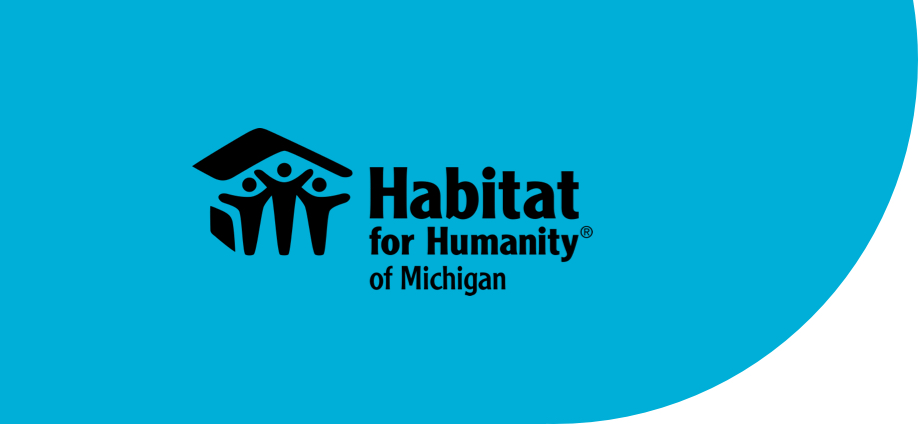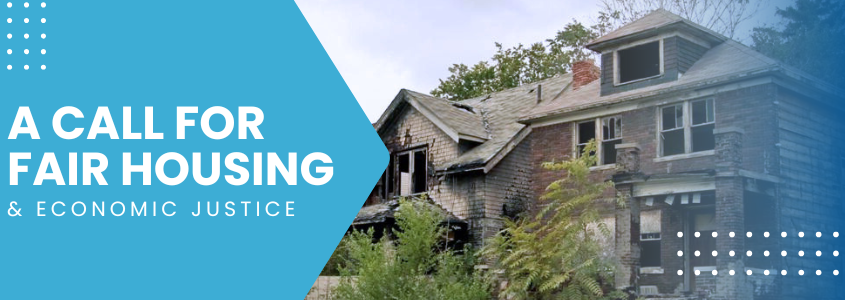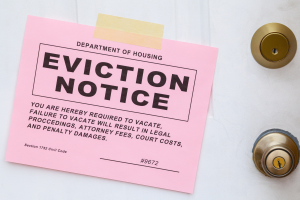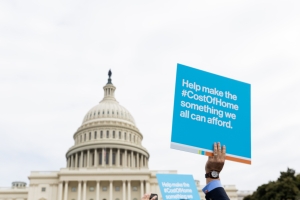A Call for Fair Housing and Economic Justice
January marks National Poverty Awareness Month, a time to reflect on the pervasive issue of poverty in our society and its deep connections to housing inequity. Housing is not just a roof over one’s head; it’s a foundation for health, education, and economic opportunity. Yet, for millions of Americans living in poverty, access to safe, stable, and affordable housing remains out of reach.
This month serves as a critical reminder that addressing poverty must include a focus on fair housing—a fundamental right that is too often denied to those most vulnerable.
The Connection Between Poverty and Housing
Poverty and housing insecurity are deeply intertwined:
- Cost Burden: According to the National Low Income Housing Coalition, more than 10 million households in the U.S. spend over 50% of their income on rent, leaving little for essentials like food, healthcare, and education.
- Homelessness Crisis: On any given night, over half a million Americans experience homelessness, a stark indicator of the housing affordability crisis.
- Barriers to Stability: Poor housing conditions, eviction, and frequent moves disrupt families’ ability to access consistent employment, education, and community support.
These challenges disproportionately affect communities of color, single-parent households, and individuals with disabilities, highlighting the systemic inequities that perpetuate cycles of poverty.
Fair Housing: A Pathway to Poverty Reduction
Fair housing policies and practices play a crucial role in reducing poverty and promoting economic mobility. When individuals and families have access to stable and affordable housing, they gain a foundation to build better futures. Here’s how fair housing initiatives can make a difference:
- Economic Opportunity: Affordable housing near job centers enables individuals to access employment opportunities without the burden of long commutes.
- Education Access: Stable housing allows children to remain in the same schools, improving academic outcomes and breaking the cycle of generational poverty.
- Health and Well-Being: Safe housing reduces exposure to harmful conditions, such as lead and mold, and decreases stress linked to financial instability.
The Role of Advocacy During National Poverty Awareness Month
National Poverty Awareness Month is an opportunity to advocate for policies that address the root causes of poverty and housing inequity. Here are key actions we can take:
- Support Affordable Housing Initiatives: Advocate for increased funding for affordable housing programs, such as Housing Choice Vouchers and the Low-Income Housing Tax Credit.
- Promote Equitable Zoning: Push for inclusive zoning policies that encourage the development of affordable housing in all communities.
- Combat Housing Discrimination: Strengthen enforcement of the Fair Housing Act to ensure that no one is denied housing based on race, ethnicity, disability, or economic status.
- Engage in Local Efforts: Volunteer with organizations that provide housing assistance, financial literacy programs, and eviction prevention resources.
A Call to Action
Ending poverty and achieving fair housing go hand in hand. As we observe National Poverty Awareness Month, let us recognize the urgent need to address housing inequities as a key component of poverty reduction.
Everyone deserves the dignity of a safe and stable home. By advocating for fair housing policies, supporting affordable housing initiatives, and challenging systemic barriers, we can make meaningful progress toward a more equitable society.
This January, let’s commit to being part of the solution. Together, we can create a future where poverty is no longer a barrier to opportunity, and housing is a right, not a privilege.
Get Involved:
- Learn about your community’s housing challenges and advocate for change.
- Donate to or volunteer with Habitat for Humanity Michigan which supports housing equity.
- Use your voice to raise awareness about the importance of fair housing in ending poverty.
Fair housing is a cornerstone of economic justice. Let’s ensure that everyone has a chance to thrive.




